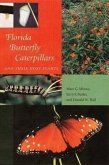Protect Our North American Royalty Once a familiar sight floating above meadows, gardens, and prairies, monarch butterflies are now disappearing from North America, their steep decline due mostly to habitat loss caused by development and climate change. This highly visual, at-a-glance guide shows how you can help restore habitat by planting the native wildflowers, shrubs, and trees that monarchs depend on. Plant profiles highlight 31 varieties of milkweed - the only food monarch caterpillars eat - and dozens of nectar flowers that sustain the adults during breeding and migration. A photo gallery of the monarch's shape-shifting life, advice on matching bloom time to migration, range maps, garden plans, and tips on protecting wild habitat make this an invaluable resource for anyone who wants to help shape a positive future for these important pollinators.








